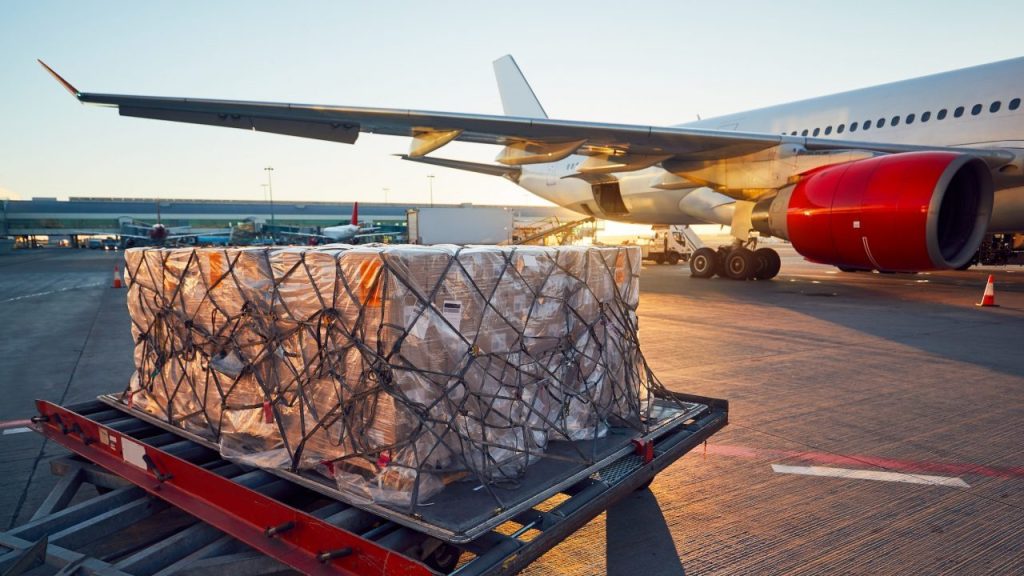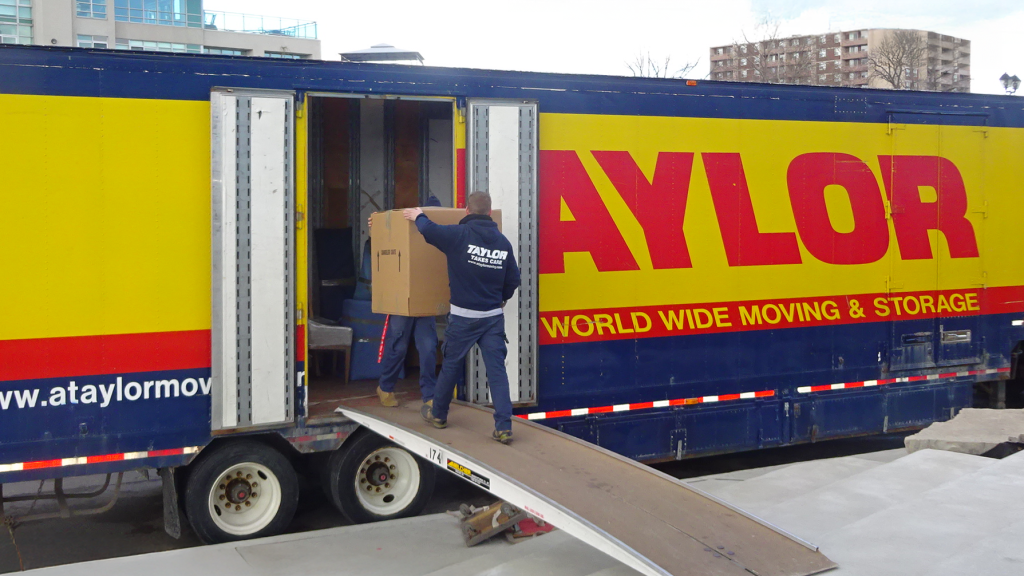
International Moving between Canada and Finland
Moving overseas to or from Canada and Finland? Learn more about packing, shipping, and customs to make your international relocation stress-free.
Planning Your Move
The first step in your international move is a tailored assessment of your needs. You can complete our AI-powered survey or meet with our consultants via Zoom, Google Meet, or in person. During this consultation, we’ll determine your packing requirements, customs considerations, and other key details.

Why Choose Taylor International?
We offer flexible, high-quality moving solutions through our extensive supply chain. As members of the International Association of Movers (IAM) and Fédération Internationale des Déménageurs Internationaux (FIDI), we provide access to a vast global network, ensuring reliable service with backup options for a seamless transition.
- Premium Service: Our FIDI-certified partners offer top-tier care.
- Budget-Friendly Options: IAM-certified movers provide reliable, cost-effective solutions.
- Balanced Approach: We customize packages to match your priorities.
- Diversified Supply Chain: No matter the option selected in the event of a major issue, we have back-up plans to ensure your move is performed with your customized plan.
- Extensive 3rd Party Partnerships: Our network also encompasses a vast array of 3rd party services from appliance disassembly, gym disassembly and other critical expert assistance to ensure your items are protected.
- Robust Cybersecurity: Our methods, procedures and systems enable your most sensitive information to be secure.
- Customs Mastery: Our international move managers work with you to ensure that you can navigate the complexities of customs, imports, exports and local regulations with the upmost care.
- Comprehensive Insurance: Taylor International provides full replacement value so you do not need to worry about the what ifs and instead focus on the will bes when you get to your destination. We will also source any services needed to render this service globally.
Our strict vetting process ensures only top-performing providers handle your shipment. If a supplier doesn’t meet our standards, they’re removed from our network—your satisfaction is our priority.
Choosing the Right Shipping Method
We help you select the most efficient transport option:

Sea Freight
The most economical choice for most moves.

Air Freight (LTL)
Faster delivery at a premium.

Hybrid Solutions
Essential items arrive by air, with the rest shipped via sea.
No matter your budget, we’ll find the best option for you.
Your Moving Journey
After your consultation, our specialists create a personalized moving plan and provide a detailed quote. Once confirmed, a dedicated moving coordinator will manage the process, ensuring smooth navigation of documentation, customs, and compliance requirements—avoiding delays or unexpected fees.
Moving from Finland to Vancouver offers an exciting opportunity to live in one of Canada’s most beautiful and dynamic cities. Known for its stunning natural surroundings, diverse culture, and thriving job market, Vancouver is a popular choice for expats. However, as with any international relocation, it requires careful planning to ensure a smooth transition.
Visa & Immigration Considerations
Finnish citizens can visit Canada for up to six months without a visa, but if you’re planning to work or study, you’ll need the appropriate permit. Many professionals apply through Canada’s Express Entry system, while others may be eligible for the British Columbia Provincial Nominee Program (BC PNP). If relocating for work, your employer may assist with securing a work permit. Early research into visa options will help avoid delays.
Housing & Neighborhoods
Vancouver is known for its high housing costs, with rent significantly higher than in Helsinki. Popular neighborhoods for newcomers include:
- Downtown Vancouver (Yaletown, Coal Harbour, West End): Ideal for professionals who want to live close to work and entertainment.
- Mount Pleasant & Commercial Drive: Trendy areas with a European feel, known for their artsy communities and independent shops.
- North Vancouver & West Vancouver: Perfect for families and outdoor enthusiasts, offering proximity to nature with excellent schools.
- Burnaby & New Westminster: More affordable alternatives with easy transit access to downtown.
Renting requires proof of income, references, and a security deposit (typically half a month’s rent). Newcomers without a Canadian credit history may need to provide extra documentation or prepay rent.
Cost of Living & Banking
Vancouver has a high cost of living, especially in housing and transportation, but salaries often reflect this. Essentials like groceries, utilities, and entertainment can be slightly more expensive than in Finland. Upon arrival, it’s best to open a Canadian bank account with major institutions such as TD, RBC, or Scotiabank and apply for a Social Insurance Number (SIN) to work legally.
Healthcare & Insurance
British Columbia has a public healthcare system, and new residents must register for the Medical Services Plan (MSP). Unlike Alberta, BC has a waiting period of up to three months before new arrivals are eligible for coverage, so obtaining private health insurance during this time is recommended.
Climate & Lifestyle Adjustments
Vancouver’s climate is milder than Finland’s, with wet, mild winters and warm, dry summers. Unlike Finland’s snowy winters, Vancouver experiences significant rainfall, so waterproof clothing is essential. However, the nearby mountains offer skiing opportunities similar to those in Finland. The city promotes an active outdoor lifestyle, with biking, hiking, and water sports readily available.
Cultural & Community Integration
Vancouver is one of Canada’s most multicultural cities, making it easy to integrate. While there isn’t a large Finnish community, expats can connect with Scandinavian cultural organizations and events, such as those hosted by the Scandinavian Centre. Networking through professional groups, sports clubs, and expat forums can also help with social and career integration.
With its natural beauty, strong economy, and welcoming atmosphere, Vancouver is a fantastic place to call home. Careful planning and an open mindset will ensure a successful transition from Finland to Canada’s west coast.
Relocating from Finland to Edmonton offers an opportunity to experience life in one of Canada’s most affordable and welcoming cities. As the capital of Alberta, Edmonton is known for its strong job market, excellent education system, and vibrant cultural scene. While moving to a new country comes with challenges, proper preparation can ensure a smooth transition.
Visa & Immigration Considerations
Finnish citizens can visit Canada for up to six months without a visa, but working or studying requires a work permit, study permit, or permanent residency status. Skilled professionals may qualify for the Express Entry program or Alberta’s Provincial Nominee Program (PNP), which helps those with in-demand skills secure residency faster. If your move is employer-sponsored, your company may assist with immigration paperwork and relocation support.
Housing & Neighborhoods
Edmonton is one of Canada’s most affordable large cities, with rental and housing costs lower than in Helsinki. Some of the best neighborhoods for newcomers include:
- Downtown & Oliver: Ideal for professionals looking for a vibrant urban lifestyle.
- Strathcona & Whyte Avenue: A lively district with a European feel, popular with students and young professionals.
- West Edmonton (Glenora & Laurier Heights): Family-friendly areas with good schools and green spaces.
- Mill Woods & The Meadows: More affordable options with diverse communities and excellent public transit.
Renting typically requires proof of income, a deposit, and references. Since new arrivals from Finland won’t have a Canadian credit history, landlords may ask for additional deposits or co-signers.
Cost of Living & Banking
Edmonton has no provincial sales tax (Alberta is the only province with this benefit), making the cost of living lower than in many other Canadian cities. Open a Canadian bank account with institutions like RBC, TD, or Scotiabank soon after arrival, and apply for a Social Insurance Number (SIN) to work legally.
Healthcare & Insurance
Alberta offers a publicly funded healthcare system, and new residents can register for the Alberta Health Care Insurance Plan (AHCIP) upon arrival. Unlike some other provinces, Alberta does not impose a waiting period for healthcare coverage, but it’s still advisable to have private insurance for any unexpected medical needs.
Climate & Lifestyle Adjustments
Edmonton’s winters are colder than Finland’s, with temperatures dropping below -30°C at times. However, the dry climate and frequent sunny days make the cold more bearable. The city hosts the largest stretch of urban parkland in North America, offering great outdoor activities year-round, including skiing, hiking, and biking. Summers are warm, with long daylight hours, similar to Finland’s summer experience.
Cultural & Community Integration
While Edmonton’s Finnish community is small, the city is multicultural, making it easy to integrate through social groups, networking events, and cultural associations. The Scandinavian Centre in Edmonton organizes events that can help Finnish expats connect with others. Edmonton is also known as “Canada’s Festival City,” with events year-round, including the Edmonton Folk Music Festival and the International Fringe Theatre Festival.
With its welcoming community, strong economy, and high quality of life, Edmonton is a great place for Finnish expats looking to build a new life in Canada. Proper planning and cultural adaptation will ensure a smooth and successful transition.
Relocating from Finland to Calgary presents a unique opportunity to experience life in one of Canada’s fastest-growing and most livable cities. Known for its strong economy, outdoor lifestyle, and friendly community, Calgary is an excellent destination for professionals, families, and students. However, adjusting to the new environment requires careful planning, from immigration paperwork to settling into a new home and lifestyle.
Visa & Immigration Considerations
Finnish citizens can visit Canada for up to six months without a visa, but if you plan to work or study, securing the appropriate permit is essential. The Express Entry system is a common route for skilled workers, and Alberta’s Provincial Nominee Program (PNP) offers additional pathways for those with specific qualifications. Employer-sponsored moves often include visa support, but if you’re relocating independently, research your best immigration options early.
Housing & Neighborhoods
Compared to Helsinki, Calgary offers more affordable housing, but rental prices have risen in recent years due to increased demand. Popular neighborhoods include:
- Downtown Calgary & Beltline: Ideal for young professionals seeking proximity to work and entertainment.
- Kensington & Sunnyside: Vibrant and walkable areas with a European-style café culture.
- West Springs & Aspen Woods: Family-friendly suburbs with excellent schools and green spaces.
Renting in Calgary requires proof of income, references, and often a deposit equivalent to one month’s rent. Since Finnish newcomers won’t have Canadian credit history, landlords may request additional guarantees.
Cost of Living & Banking
Calgary is more affordable than Toronto or Vancouver, with lower housing costs and no provincial sales tax (Alberta is the only province in Canada without one). Open a Canadian bank account at institutions like RBC, CIBC, or TD Bank upon arrival, and apply for a Social Insurance Number (SIN) to work legally.
Healthcare & Insurance
Alberta has a publicly funded healthcare system, and new residents can apply for the Alberta Health Care Insurance Plan (AHCIP). There is typically no waiting period for coverage, but it’s advisable to have private insurance during the initial transition.
Climate & Lifestyle Adjustments
Calgary’s climate differs from Finland’s. While winter temperatures can be extreme, the city experiences more sunshine than any other major Canadian city. The dry climate and Chinook winds bring occasional warm spells in winter, making Calgary more temperate than other parts of Canada. Outdoor enthusiasts will appreciate the proximity to Banff and the Rocky Mountains for skiing, hiking, and adventure sports.
Cultural & Community Integration
Calgary has a growing international community, but Finnish expatriates are relatively few. Connecting with organizations such as the Scandinavian Centre or the Calgary Multicultural Centre can help ease integration. The city’s economy is centered on energy, technology, and finance, making networking events and professional groups valuable for career advancement.
With proper planning, moving to Calgary from Finland can be an exciting and rewarding transition, offering a high quality of life, career opportunities, and access to some of the most breathtaking natural scenery in Canada.
Relocating from Finland to Toronto is an exciting opportunity, but it comes with significant adjustments, from navigating a new culture to handling the logistics of settling in. Toronto is Canada’s largest city and a multicultural hub with a strong job market, diverse neighborhoods, and a high quality of life. Here’s what you need to know to make the transition as smooth as possible.
Visa & Immigration Requirements
Before moving, ensure you have the correct visa or work permit. Finland is part of Canada’s Visa Waiver Program, so Finns can visit Canada for up to six months without a visa. However, for work or permanent residence, you’ll need a work permit, study permit, or permanent residency status through programs such as Express Entry or Provincial Nominee Programs (PNP). If your move is employer-sponsored, your company should assist with work permits and any relocation support.
Housing & Neighborhoods
Toronto’s real estate market is competitive, and rental prices can be high compared to Finland. Popular neighborhoods for expats include:
- Downtown Core (Financial District, CityPlace, King West): Ideal for professionals working in finance, tech, and consulting.
- West End (High Park, Roncesvalles, The Junction): Family-friendly areas with green spaces and a European feel.
- North York & Scarborough: More affordable options with excellent public transportation connections.
Renting requires a credit check, proof of employment, and references, which may be tricky for newcomers. Some landlords may request several months’ rent upfront if you don’t yet have a Canadian credit history.
Cost of Living & Banking
Toronto is more expensive than Helsinki in housing but offers more affordable consumer goods and dining options. Open a Canadian bank account as soon as possible with major banks such as RBC, TD, or Scotiabank. Setting up a SIN (Social Insurance Number) is also essential for working and accessing government benefits.
Healthcare & Insurance
Ontario offers public healthcare (OHIP), but new residents typically have a three-month waiting period before eligibility. It’s advisable to get private health insurance for the initial months. Toronto has a high standard of medical care, but accessing specialists can involve wait times.
Cultural & Social Integration
Toronto’s Finnish community, while small, is active, with organizations such as the Toronto Suomi-Koti (a Finnish-Canadian retirement home and community center) and the Canadian Friends of Finland. The city is welcoming and diverse, making it easy to integrate through local clubs, sports, and professional networks.
Weather & Lifestyle Adjustments
Toronto experiences hot, humid summers and cold winters, though the temperatures are generally milder than in Finland. The city is well-equipped for winter, with underground pedestrian paths and heated indoor public spaces.
Moving from Finland to Toronto is a transition that requires planning but offers great opportunities for professional and personal growth. With the right preparation, you’ll find Toronto a dynamic and welcoming new home.
Relocating from Canada to Oulu, one of Finland’s fastest-growing cities, presents an exciting opportunity for professionals, students, and families. As the largest city in northern Finland, Oulu is known for its cutting-edge technology sector, top-tier education system, and high quality of life. Its blend of urban convenience and access to unspoiled nature makes it an attractive destination for expatriates seeking a balance between work and outdoor adventure. To ensure a smooth transition, it’s essential to understand key aspects such as residency, housing, cost of living, and cultural adaptation.
Residency and Permits
Canadians planning to stay in Oulu for more than 90 days need a residence permit. The application type depends on the purpose of the move—employment, study, or family reunification. Those moving for work require a confirmed job offer from a Finnish employer, while students must provide proof of enrollment at a Finnish university. Applications can be submitted through the Enter Finland online portal. Once in Finland, newcomers must register with the Digital and Population Data Services Agency (DVV) to obtain a personal identity code, which is required for banking, healthcare, and tax registration.
Finding Housing
Oulu’s rental market is more affordable than Helsinki and Tampere, making it an appealing choice for expatriates. The city center offers modern apartments with easy access to workplaces, restaurants, and public services, while neighborhoods like Linnanmaa (near the university) and Kaijonharju are popular among students and researchers. Families may prefer quieter areas like Hiukkavaara or Pateniemi, which provide spacious housing options and excellent schools. Rental agreements typically require a one- to three-month deposit, and leases usually last at least a year. Destination service providers can assist with apartment hunting, lease negotiations, and setting up utilities.
Cost of Living
The cost of living in Oulu is lower than in Helsinki but slightly higher than in most mid-sized Canadian cities. Grocery and utility costs are moderate, but imported goods can be expensive. Finland’s public healthcare system is highly regarded, and all registered residents have access to it, though some expatriates opt for private health insurance for faster specialist care. Oulu’s extensive bike lanes and public transportation system reduce the need for a car, though having a vehicle can be beneficial for exploring the surrounding countryside.
Cultural Adaptation and Everyday Life
Oulu’s culture reflects Finland’s love for technology, education, and nature. The city has a vibrant tech scene, with many job opportunities in IT, healthcare, and research. English is widely spoken, but learning basic Finnish can ease daily interactions and enhance social integration. Outdoor activities such as cross-country skiing, hiking, and ice swimming are popular, and the city’s location near the Gulf of Bothnia offers breathtaking scenery and recreational opportunities year-round. Social life in Oulu often involves saunas, local music festivals, and outdoor gatherings.To ensure a smooth transition, working with a destination service provider can be highly beneficial. They provide assistance with residency registration, banking, healthcare access, and cultural orientation. With careful planning and an open mindset, moving to Oulu can be an enriching and rewarding experience, offering the best of Finland’s technological advancements and natural beauty.
Relocating from Canada to Tampere, Finland’s third-largest city, offers an excellent balance between urban convenience and natural beauty. Known as the “Manchester of Finland” due to its industrial heritage, Tampere has evolved into a thriving technology, education, and cultural hub. With its high quality of life, efficient public services, and welcoming international community, Tampere is an attractive destination for expatriates, professionals, and students alike. To ensure a smooth transition, newcomers should familiarize themselves with key aspects such as residency, housing, cost of living, and cultural adaptation.
Residency and Permits
Canadians planning to stay in Tampere for more than 90 days need a residence permit. The type of permit required depends on the reason for relocation—work, study, or family reunification. Those moving for employment need a confirmed job offer from a Finnish employer, while students must provide proof of admission to a Finnish university. Applications can be submitted online via the Enter Finland portal, and early submission is recommended due to varying processing times. Upon arrival, new residents must register with the Digital and Population Data Services Agency (DVV) to obtain a Finnish personal identity code, which is required for essential services like banking, healthcare, and tax registration.
Finding Housing
Tampere’s rental market is relatively affordable compared to Helsinki, with a variety of housing options available in both the city center and surrounding suburbs. Popular residential areas include Kaleva, known for its student-friendly atmosphere; Hervanta, a tech and innovation district with modern housing; and Pyynikki, a scenic area near parks and lakes. Rental agreements usually require a deposit equal to one to three months’ rent, and leases often last at least one year. Many newcomers use destination service providers to assist with apartment hunting, lease agreements, and setting up utilities.
Cost of Living
The cost of living in Tampere is moderate by Finnish standards but can be higher than in most Canadian mid-sized cities. Groceries and transportation are reasonably priced, and the city’s public healthcare system is accessible to all residents. Many expats opt for private health insurance for faster specialist care. The public transportation system, including buses and the newly developed tram network, makes getting around Tampere easy and reduces the need for a car. Cycling is also a popular option, with well-maintained bike lanes throughout the city.
Cultural Adaptation and Everyday Life
Tampere offers a rich cultural and social scene, from theaters and museums to music festivals and sports events. Finnish culture values direct communication, personal space, and nature appreciation. While many Finns speak English fluently, learning basic Finnish can be helpful for daily interactions and integration. Outdoor activities such as hiking, skiing, and enjoying the city’s numerous lakes are popular pastimes. Social life often revolves around sauna culture, and Tampere is home to some of Finland’s most famous public saunas, including Rauhaniemi and Rajaportti Sauna.To facilitate a smooth transition, working with a destination service provider can be invaluable. They offer support with residency registration, banking, healthcare access, and cultural orientation. With proper preparation and an open mindset, moving to Tampere can be an exciting and rewarding experience, offering the best of both urban living and nature.
Relocating from Canada to Rovaniemi, the capital of Finnish Lapland and the official hometown of Santa Claus, offers a unique blend of Arctic nature, modern amenities, and a strong sense of community. Known for its stunning winter landscapes, Northern Lights, and vibrant cultural life, Rovaniemi is an attractive destination for professionals, students, and nature enthusiasts. However, adjusting to life in the far north requires careful planning and preparation.
Residency and Permits
Canadians planning to stay in Rovaniemi for more than 90 days need a residence permit. The application process depends on the purpose of the stay—employment, study, or family reunification. A job offer from a Finnish employer is necessary for a work permit, while students must provide proof of admission to a Finnish educational institution. Applications can be submitted online through the Enter Finland portal, and it is advisable to apply well in advance due to processing times. Upon arrival, new residents must register with the Digital and Population Data Services Agency (DVV) to obtain a personal identity code, which is required for banking, healthcare, and other essential services.
Finding Housing
Rovaniemi’s rental market is more affordable than major Finnish cities like Helsinki and Turku. Apartments in the city center provide easy access to shops, restaurants, and public services, while quieter neighborhoods like Ounasvaara, Korkalovaara, and Saarenkylä offer proximity to nature. Many students and professionals choose to live near the University of Lapland or Lapland University of Applied Sciences. Rental agreements typically require a one- to three-month deposit, and most leases last at least a year. Working with a destination service provider can ease the process of finding housing, understanding rental contracts, and setting up utilities.
Cost of Living
While Rovaniemi offers a lower cost of living compared to Helsinki, the price of goods and services can be higher due to its remote location. Groceries, dining out, and household essentials may be more expensive, but public healthcare is accessible and relatively affordable. Owning a car is not a necessity, as the city has a reliable bus system, but having a vehicle can be beneficial for exploring the surrounding Arctic landscapes.
Cultural Adaptation and Everyday Life
Life in Rovaniemi is shaped by its Arctic environment. Winters are long and cold, with limited daylight, while summers bring the Midnight Sun and outdoor festivals. Finnish culture values nature, personal space, and punctuality. Many locals speak English, but learning basic Finnish can enhance social integration. Outdoor activities such as skiing, snowmobiling, and hiking are popular, and the city offers a lively cultural scene, including museums, concerts, and seasonal events.For a smooth transition, working with a destination service provider can be highly beneficial. They assist with everything from residence registration and banking to healthcare access and cultural orientation. By embracing the local lifestyle and preparing for Arctic conditions, moving to Rovaniemi can be an extraordinary and rewarding experience.
Relocating from Canada to Turku, Finland’s oldest city and a vibrant cultural hub, offers a mix of historical charm and modern convenience. As Finland’s second-largest urban area, Turku provides an excellent quality of life, a thriving job market, and a welcoming international community. To ensure a successful transition, newcomers must consider key aspects such as residency, housing, cost of living, and cultural adaptation.
Residency and Permits
Canadians planning to stay in Turku for more than 90 days must apply for a residence permit. The type of permit depends on the reason for relocation—employment, study, or family reunification. A job offer from a Finnish employer is required for a work permit, and applications can be submitted through the Enter Finland portal. Processing times may vary, so it’s essential to apply well in advance. Upon arrival, new residents must register with the Digital and Population Data Services Agency (DVV) to obtain a Finnish personal identity code, which is required for banking, healthcare, and other essential services.
Finding Housing
Turku’s rental market is more affordable than Helsinki’s, making it an attractive option for expatriates. The city center offers modern apartments, while areas like Kupittaa, Nummi, and Raunistula provide quieter, family-friendly environments. Many expats also choose to live in Kaarina or Raisio, suburban towns just outside Turku with convenient transport links. Rental agreements typically require a one- to three-month deposit, and most leases last at least a year. Working with a destination service provider can help newcomers find suitable housing and navigate Finnish rental laws.
Cost of Living
The cost of living in Turku is lower than in Helsinki but still higher than in most Canadian cities outside Toronto or Vancouver. Public healthcare is widely available, but private health insurance may be beneficial for quicker access to specialists. Grocery costs are comparable to Canadian prices, though imported goods can be more expensive. Finland’s extensive public transport system ensures easy movement within the city and surrounding areas, reducing the need for a car.
Cultural Adaptation and Everyday Life
Finnish culture is known for its direct communication, love of nature, and strong emphasis on personal space. While English is widely spoken, learning basic Finnish can help with integration. Turku is a lively city with a rich cultural scene, including museums, theaters, and festivals like the Medieval Market and Ruisrock music festival. Outdoor activities such as cycling, hiking, and enjoying the archipelago are popular pastimes. The city also has a strong student presence, with the University of Turku and Åbo Akademi University attracting international students.
To ensure a smooth transition, working with a destination service provider can be invaluable. They can assist with residence registration, banking, healthcare access, and cultural orientation. With proper preparation and an open mindset, moving to Turku can be an exciting and rewarding experience.
Relocating from Canada to Helsinki, Finland, presents an exciting opportunity, whether for work, study, or personal adventure. As one of the world’s most livable cities, Helsinki offers a high quality of life, efficient public transportation, and a strong social support system. However, settling in successfully requires careful planning and an understanding of key aspects such as residency, housing, cost of living, and cultural adaptation.
Residency and Permits
Canadians moving to Helsinki for more than 90 days will need a residence permit. The application process depends on the purpose of the stay—employment, study, or family reunification. Work-based residence permits require a job contract from a Finnish employer, and applications can be submitted online through the Enter Finland portal. Processing times vary, so it’s advisable to apply well in advance of your move.
Finding Housing
Helsinki’s rental market is competitive, with high demand for apartments, particularly in the city center. Rental prices vary significantly based on location, with more affordable options in suburban areas such as Espoo or Vantaa. Many newcomers work with relocation service providers to find housing that meets their budget and lifestyle needs. It’s common to pay a deposit equal to one to three months’ rent, and rental contracts typically last for a year.
Cost of Living
While Helsinki is more affordable than some major Canadian cities like Toronto or Vancouver, it remains an expensive place to live. Utilities, groceries, and transportation can add up, but Finland’s strong social services and high wages balance the costs. The public healthcare system is excellent, though many expats opt for private insurance for quicker access to specialists.
Cultural Adaptation and Everyday Life
Finnish culture values punctuality, direct communication, and personal space. While many Finns speak English fluently, learning basic Finnish phrases can help with integration. Helsinki’s public transportation system is highly efficient, reducing the need for a car. Socializing in Finland often involves outdoor activities, from enjoying the city’s parks and archipelago to participating in the sauna culture.
For a smooth transition, working with a destination service provider can be beneficial. They can assist with registering for a personal identity code, opening a bank account, navigating local bureaucracy, and providing cultural orientation. With proper planning and an open mindset, moving to Helsinki can be a seamless and rewarding experience.